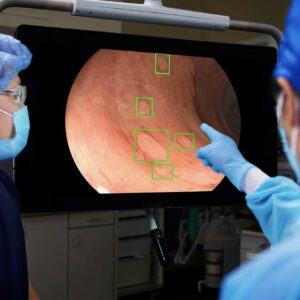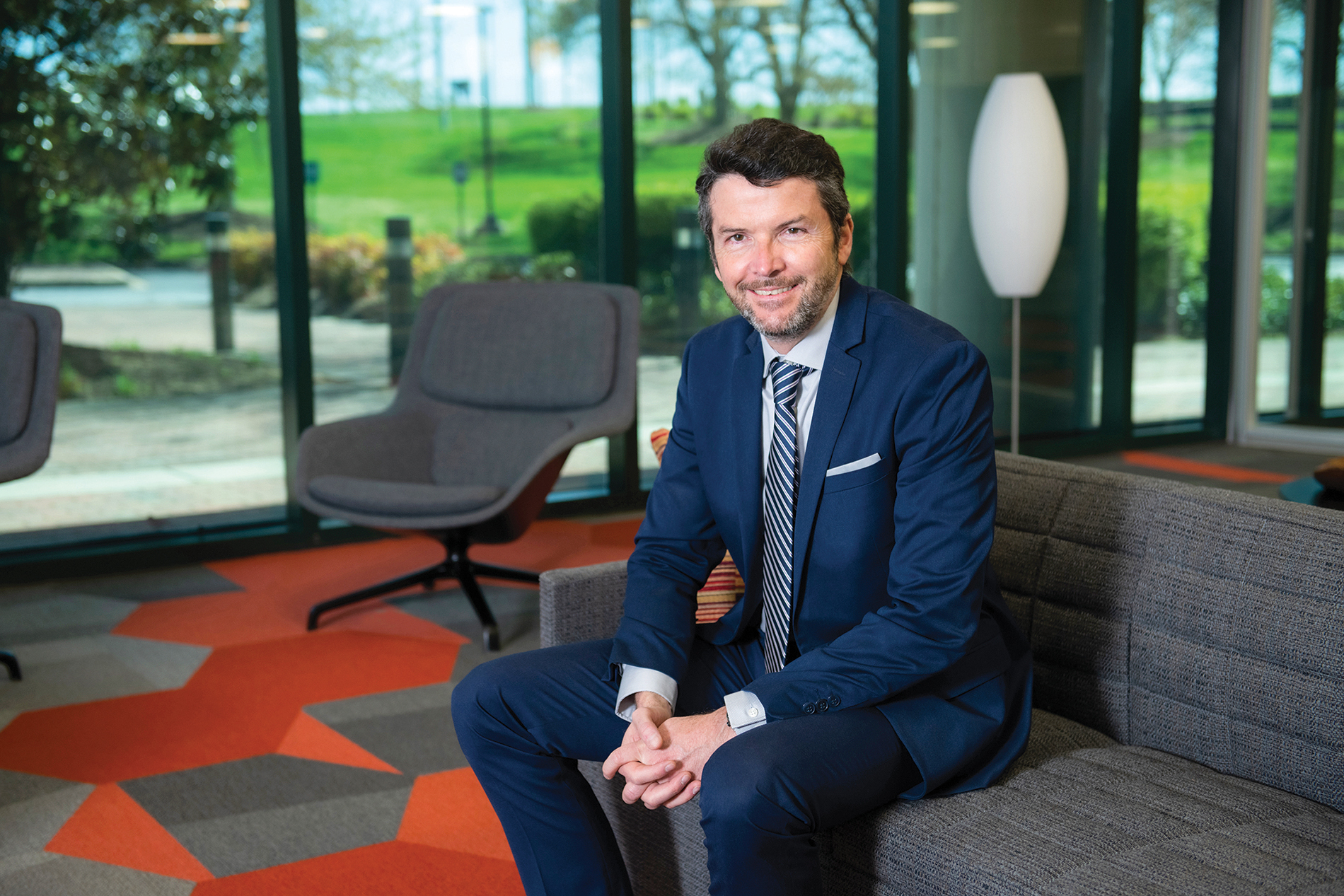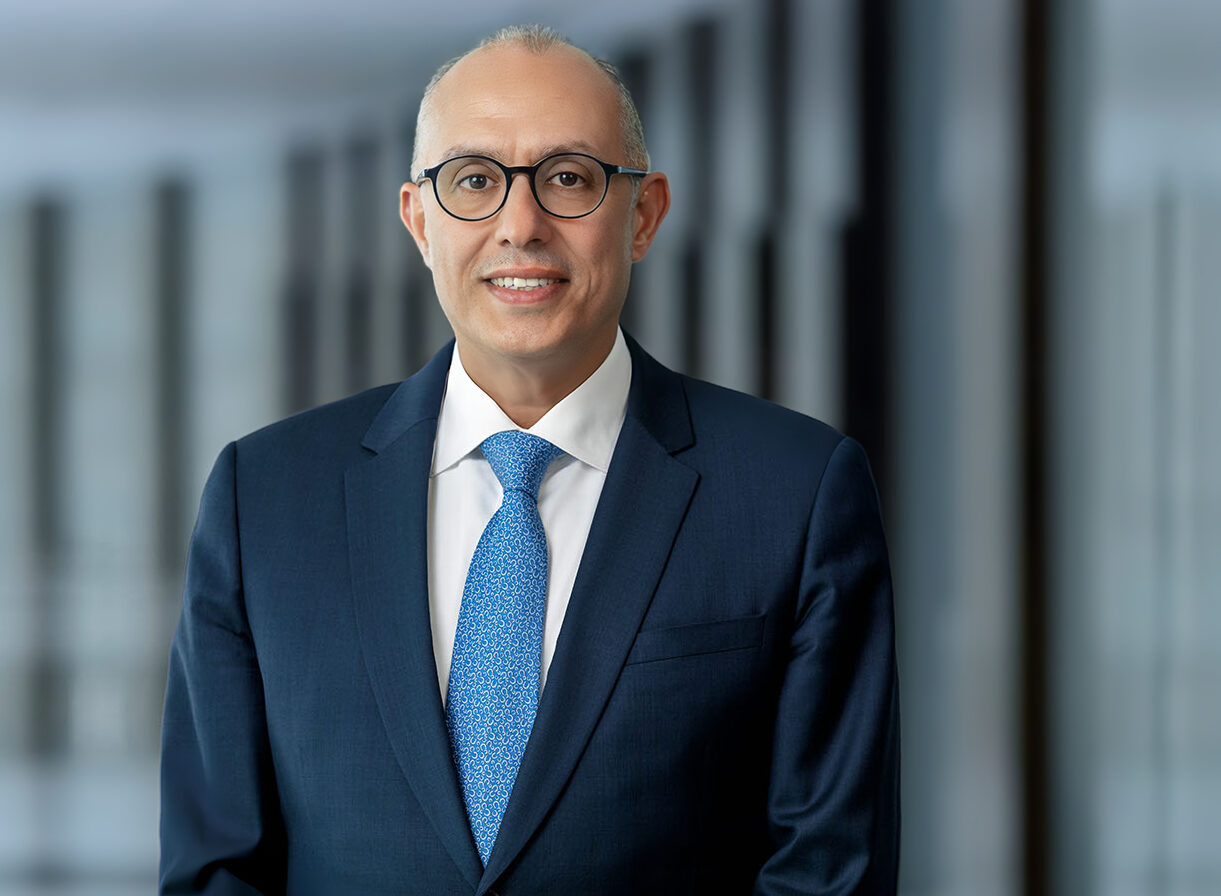- Achieving Your Critical & Essential Results
- Business Innovation
- Featured
- IQ Insigniam Quarterly® Magazine
When Innovation Saves Lives
Former U.S. President Dwight D. Eisenhower, referencing Dr. J. Roscoe Miller, president of Northwestern University, made a now-legendary quip in a 1954 speech, which would later come to be known as the “Eisenhower Principle.” Said Ike, “I have two kinds of problems: the urgent and the important. The urgent are not important, and the important are never urgent.”
Eisenhower’s words not only reflect his method of organizing workload and priorities but also represent a key consideration facing many CXOs racing to embed artificial intelligence (AI) and machine learning (ML) into key areas of their enterprises to create greater operational efficiencies.
For many, the Eisenhower Principle applies; the decision to address what is either urgent or important ultimately depends on the needs of the business, such as innovating arcane practices and processes to modernize their supply chain.
However, what of the companies and organizations who can’t simply choose urgent over important, or vice versa, because both are equally critical and essential when lives are on the line?
One company that knows this principle all too well is Medtronic, a medical device developer based in Dublin, Ireland, with operational headquarters in Minneapolis, Minnesota. Founded in 1949, Medtronic has grown exponentially to become the world’s largest medical device company. With more than 95,000 associates worldwide and an annual revenue of $31.2 billion (USD) in 2023, Medtronic operates through four primary business units: the Minimally Invasive Therapies Group, the Diabetes Group, the Restorative Therapies Group, and the Cardiac and Vascular Group. Across these units, Medtronic focuses on developing and producing a wide range of devices and therapies aimed at addressing over 30 chronic diseases. These include conditions such as heart failure, Parkinson’s disease, Down Syndrome, chronic pain, spinal disorders, and more.
In recent years, the company has garnered accolades and attracted media attention for breakthroughs in its endoscopy practice. To understand the impact these diseases have on the global populace, consider a report from the National Library of Medicine, which indicates that nearly 5 million new cases of gastrointestinal cancers were diagnosed in 2018, resulting in 3.4 million related deaths worldwide. All told, GI cancers account for 26% of the global cancer incidence and 35% of all cancer-related deaths.
For a company such as Medtronic, what is urgent is also critical and essential: harnessing advances in big data and digitization to help doctors tailor treatments to patients like never before. And by never before, the company means embracing AI and ML to create innovative products and platforms and, ultimately, better outcomes for patients for whom life is urgent and important.
In 2021, Medtronic’s GI Genius Intelligent Endoscopy Module received U.S. FDA clearance as the first and only AI system for colonoscopy. The module, developed in partnership with Cosmo Pharmaceuticals, employs a computer-aided polyp detection system powered by AI, enabling physicians to detect colorectal polyps that were once nearly invisible through standard identification methods.

During the FDA’s review process, it was found that GI Genius could identify lab-confirmed adenomas or carcinomas in 55% of patients compared to identifying them in 42% of patients with standard colonoscopy, an observed difference of 13%.
According to Courtney H. Lias, Ph.D. acting director of the GastroRenal, ObGyn, General Hospital and Urology Devices Office in the FDA’s Center for Devices and Radiological Health, the work that Medtronic is doing stands to have a seismic impact on both the medical device industry as well as patient care.
“Artificial intelligence has the potential to transform healthcare to better assist providers and improve patient care,” said Dr. Lias in an FDA-issued press release.
“When AI is combined with traditional screenings or surveillance methods, it could help find problems early on, when they may be easier to treat. Studies show that during colorectal cancer screenings, missed lesions can be a problem even for well-trained clinicians.”
As one can imagine, a breakthrough on the scale of GI Genius impacts multiple departments and disciplines, each with a powerful set of considerations regarding the market opportunity, AI capabilities, and overall impacts on patient health. To better understand those concerns, IQ spoke with three executive leaders within Medtronic—Giovanni Di Napoli, President, Endoscopy; Dr. Austin Lee Chiang, Chief Medical Officer, Endoscopy; and Ha Hong, Chief Artificial Intelligence Officer, Endoscopy—to better understand how GI Genius is transforming their respective disciplines and enhancing the ability for practitioners and clinicians to care for patients in ways never before possible.
IQ: Congratulations on Medtronic bringing the GI Genius Intelligent Endoscopy Module to market—the world’s first computer-aided polyp detection system powered by AI. Dr. Chiang, as chief medical officer at Medtronic, why is this module such a game-changer?
Dr. Chiang: GI Genius is revolutionary in terms of how physicians detect colorectal polyps of various sizes, shapes, and morphologies—many of which were previously undetectable via high-definition colonoscopies alone. By harnessing deep learning algorithms and real-time data, we empower physicians to detect and treat colorectal polyps through enhanced visualization, with a 99.7% sensitivity rate and fewer than 1% false positives.
In real terms, that means a 50% greater likelihood of detecting multiple polyps and a 53% increase in the detection of polyps in the distal colon. Additionally, this is all detected in real-time, thereby dramatically enhancing our ability to detect and treat early.
When you consider that most of us will need a colonoscopy screening for cancer by the age of 45, we can now pinpoint polyps on the screen during these procedures, potentially preventing them from being overlooked and reducing the need for follow-up appointments. This improves patient outcomes and lowers the likelihood of cancer developing in the first place, which is our ultimate goal.
Lastly, studies have shown significant advancements in cancer detection thanks to our technology, potentially leading to a decrease in cancer cases, which is a cause we’re deeply passionate about. And this is just the beginning—AI holds immense promise in our field, not only in diagnosis but also in tailoring patient experiences and streamlining healthcare operations.
IQ: That’s a great segue to talk about how AI’s role in elevating the health and wellness of actual human beings. Mr. Hong, as chief artificial intelligence officer over the endoscopy business at Medtronic, you have greater purview than most into this world. I have read that you believe in putting patients and healthcare providers at the forefront of your work. From your perspective, how does the human factor in endoscopy complement machine intelligence?
Mr. Hong: At Medtronic, we believe in harnessing the power of both human and machine intelligence to enhance patient outcomes. Rather than replacing human intelligence with machines, we see machine intelligence as a valuable tool to support and complement human decision-making. Our approach is simple yet effective: clinicians and human decision-makers remain in the driver’s seat, with machines stepping in to assist and occasionally alerting to potential issues that might otherwise be missed. This dynamic between human clinicians and machine intelligence ensures better patient outcomes. It’s all about combining the strengths of both to guarantee the best possible results.
Beyond that, I think that it’s really important to foster collaborative discussions among various stakeholders, which is crucial for addressing important topics related to some of the mystique surrounding AI. We value critical real-world feedback from practitioners who rely on our devices to drive progress in our field, particularly within our endoscopy business unit. The technology stands to revolutionize the practice, yet it is absolutely critical to collaborate as humans in a responsible and thoughtful manner to ensure the best outcomes for patients.

IQ: Mr. Di Napoli, as president of Medtronic’s gastrointestinal business, can you elaborate on how the GI Genius AI platform factors into the critical and essential results you’re currently focused on?
Mr. Di Napoli: We understand that our technologies—particularly the GI Genius platform—can enhance early diagnosis and treatment of cancer and diseases, so it is paramount that we continually seek ways to enhance our ability to reach more customers and, most importantly, serve more patients. This opportunity holds immense strategic importance for many med-tech companies, including ours.
Consider the challenges facing an endoscopist who performs 10-15 colonoscopies a day. With the vast number of pixels to examine on the screen, it’s humanly impossible to catch every lesion, particularly the flat and challenging ones. This is where AI comes in to provide invaluable support, ensuring consistent performance throughout the day and aiding in the detection of difficult-to-spot lesions. Our customers who have adopted our GI Genius technology have experienced its value firsthand, especially during real-time procedures where there’s no room for going back and forth like with other imaging technologies such as CT scans or MRIs.
We firmly believe that AI-assisted colonoscopies will become the gold standard in the field—which is why its development and impact in the market is so critical to me. The technology is a supportive tool that enhances the accuracy and efficiency of the procedure, ultimately improving patient outcomes and reducing the risk of missed lesions.
IQ: If it is critical and essential for Medtronic to deliver leading-edge tools that outperform existing methods of patient care, then I imagine that trust is a critical component in order to achieve that goal. How does Medtronic prioritize trust and transparency when integrating machine intelligence into medical devices?
Mr. Hong: Absolutely, building trust is foundational to our work. Firstly, when it comes to developing medical devices, it’s crucial to prioritize the clinical problem you’re aiming to solve rather than starting with the technology itself. I’ve personally learned this lesson the hard way, realizing the importance of focusing on clinical benefits and putting patients and clinicians first, especially in a field where safety and effectiveness are paramount.
Additionally, creating a medical device is more like a marathon than a sprint. It’s essential to invest enough time in the initial planning phase and involve key stakeholders early on, including regulatory, clinical, business, marketing, and sales personnel. By bringing in diverse perspectives from the start, we can avoid setting incorrect targets and wasting valuable time on solutions that may not address the clinical problem effectively or have viable regulatory and business strategies. By being transparent and open throughout each stage, we increase the trust we’re able to build with our key constituents.
Also, when it comes to technology, while it’s important, success in the medical device field isn’t solely determined by having the best technology. Instead, it’s about demonstrating clinical evidence and ensuring clear communication of technology outputs, such as AI predictions, to users.

IQ: As a follow-up, one concern we hear repeatedly regarding the development of AI platforms is the quality and integrity of the underlying data. How does Medtronic balance the acceleration of market adoption of AI technology with responsible and ethical development?
Mr. Hong: At Medtronic, we understand the critical role of reliable and responsible AI in healthcare. That’s why we’ve developed the Medtronic AI Compass – a set of seven principles outlining our commitment to creating trustworthy AI systems. This white paper, available to the public, emphasizes the significance of data in reducing bias and ensuring the effectiveness of AI solutions.
One of the key aspects highlighted is the importance of data quality—from the training dataset to validation and verification datasets. We believe that starting with a clear understanding of the clinical problem to be solved is essential. Once the problem is identified, we establish acceptance criteria or performance targets.
For example, a clinical goal might be to reduce the miss rate of polyps during procedures like colonoscopies. The acceptance criteria could be to achieve a specific percentage reduction in this miss rate. From there, we take a methodical approach, turning the process into a science. We collect data from various sources to characterize the distribution of diseases in real-world situations. This includes understanding different disease types, patient characteristics like age and gender, and factors like imaging device settings.
By analyzing how these various factors contribute to the diagnosis or outcome of the disease, we can develop AI algorithms that perform effectively across different scenarios. If we find that our AI algorithm is not performing well for a specific subset of cases that are clinically relevant, we go back and refine our dataset to improve its accuracy and reliability.
IQ: Building on that point, Mr. Di Napoli, I know that Medtronic also fosters trust through collaboration to stay at the forefront of the rapidly evolving medtech landscape. How have partnerships with Cosmo Pharmaceuticals and NVIDIA enhanced the capabilities of the GI Genius?
Mr. Di Napoli: At a high level, our desire to collaborate with other companies stems from the relationships we build with our customers. When customers see us as a company committed to innovation and willing to take risks, they often approach us with new ideas and challenges. This culture of innovation is particularly strong within our Medtronic endoscopy operating unit.
Specifically, our strategic collaboration with Cosmo Pharmaceuticals, along with the integration of advanced NVIDIA AI technologies, brought our AI Access platform to life.
For context, the GI Genius AI platform was designed by Cosmo Pharmaceuticals, with the ability to host multiple AI algorithms. Together with software from NVIDIA—including their Holoscan and IGX technologies—third-party developers can efficiently train and validate their own AI models.
By applying this technology to endoscopic needs, we were able to create something of enhanced value the market had never seen before. Our partnership with Cosmo Pharmaceuticals and NVIDIA allows us to be at the forefront of enhancing patient care in the future.
IQ: From a delivery of care standpoint, where do you see the great opportunity for AI and machine learning to complement human intelligence in the field of endoscopy?
Dr. Chiang: I suspect there is concern that robots and AI will replace human jobs, and while that might be true in some industries, it’s different when it comes to procedures like colonoscopies. Here, the goal is to enhance what doctors are already doing, ultimately benefiting the patient, and AI plays a key role in this enhancement.
I often remind people that AI isn’t something new—it’s already part of our daily lives, from navigation systems to voice assistants. In many ways, AI has made our lives easier and more efficient. Similarly, AI can improve diagnostic accuracy in healthcare, leading to better patient outcomes. So, instead of fearing AI, we should see it as a tool that complements and enhances human capabilities, ultimately benefiting both healthcare professionals and patients.
Mr. Hong: I second that and would also add that, in terms of the human element, our goal at Medtronic is to put clinicians in the driver’s seat, and AI is an assistant for them to drive the clinical decision-making process and make an informed choice of the use of the AI system in general.
We also believe that practitioners should understand the basics in terms of how AI systems work and how they can augment and enhance the work they do, as well as what technologies can be found across products. This is why we created the Medtronic AI Academy, which includes visual and didactic courses composed of lectures and materials designed to inform and illustrate the clinical benefits and utility of our products.
Getting back to the idea of trust, this degree of transparency is not only foundational to our strategy at Medtronic, but it truly underpins the value we see that only humans can bring to patient care and outcomes.
IQ: Long-term, I’m sure Medtronic is focused on reaching patients in new geographies in order to make the greatest impact. Mr. Di Napoli, you’ve been quoted as saying you plan to globalize Medtronic’s business further by potentially expanding into China and Japan. Why is APAC of particular interest to you—and what unique challenges have you been forced to contend with?
Mr. Di Napoli: That’s a great question that alludes to a few different factors. First, our business has shifted dramatically in the last decade. If you look back six or seven years ago, approximately 75% of our revenue came from the U.S. As we’ve expanded globally, that number is now around 40%. So, market diversification is a critical and essential aspect of our strategy and my responsibility to guide as a leader.
Secondly, in terms of expanding into APAC specifically, we believe there is an opportunity to make a transformational impact. Unfortunately, we know there is a rising prevalence of gastrointestinal diseases in the region. According to The World Cancer Research Fund, Japan and China rank third and fifth on the list of the top 20 countries with the highest incidence of stomach cancer. We believe we can be part of the solution based on GI Genius’ ability, for instance, to screen and detect issues faster via a more effective approach and in a minimally invasive way.
Lastly, we also know that in order to be competitive globally, there must be manufacturing capabilities local to the regions we expand into because value-based pricing continues to evolve. So, these three factors overlaid together really dictate the markets we consider for future expansion.
IQ: Beyond the immense possibility afforded by emerging technologies, what are the things that keep you up at night?
Mr. Di Napoli: For me, it’s employee engagement. That is the key to our success—and success in general. I ask myself constantly if we’re doing enough to keep our employees engaged with our vision and goal of serving more patients globally. And if we are not, do we know why? How can we address it? I make an effort to speak directly with employees from across the organization about this—how do you feel about your team? Are we doing enough? Are we communicating enough? It’s what keeps me awake at night. If we don’t have an organization that drives in the same direction and is engaged, then that’s a big problem.
Dr. Chiang: Perhaps the greatest source of stress is the misconceptions regarding AI and the skepticism surrounding it. While some skepticism may be warranted, especially in highly regulated sectors like healthcare, it’s essential to recognize the robust safeguards and regulations in place.
Navigating the approval process for AI in healthcare requires a deep understanding of its intricacies—which is a factor that I believe deserves greater recognition and appreciation.
Moreover, the timing of AI’s introduction couldn’t be better, as there’s a heightened focus on health equity. Ensuring that AI systems are developed with the right inputs is crucial for creating solutions that are representative of diverse populations. Historically, medical advancements have often catered to specific demographics, but with a renewed emphasis on inclusivity, there’s a concerted effort to develop AI solutions that are not only equitable but also applicable to a broader range of individuals.
IQ: A final question for each of you: What inspires and breathes life into your work?
Dr. Chiang: I’m inspired and excited by the possibilities afforded by AI, which has the potential to revolutionize healthcare by improving diagnosis accuracy, delivering personalized treatments, enhancing safety, and optimizing operational efficiency within our complex healthcare system. By streamlining workflows and reducing administrative burdens, AI can alleviate frustrations and reduce burnout among healthcare professionals, ultimately restoring motivation to practice medicine. However, we are only scratching the surface of AI’s capabilities, and there is still much to explore and discover. The advancements we are witnessing are just the beginning of what promises to be a transformative wave of innovation in healthcare driven by AI.
Mr. Di Napoli: The challenges at hand inspire me. To me, it means we stand to accomplish something that’s never been done before. That translates to innovation in my mind, grounded within a growth mindset. Leading this innovation is critical and essential to my success as a leader, as well as the success of my team.
Mr. Hong: Realizing that my work directly influences patients’ lives and clinicians’ practices is incredibly motivating. Knowing that I can contribute to improving the standard clinical practice energizes me and gives me purpose. I believe this sentiment is shared by many of my colleagues at Medtronic; we are united in our vision and commitment to positively impacting healthcare.



